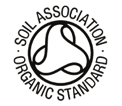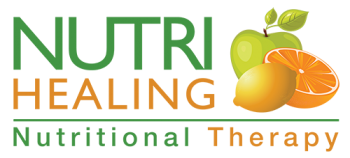What is the difference between Organic and Conventional Farming? - September 2010
Introduction to farming
Farming has been a way of life for centuries, many farmers used to rotate their crop fields to allow the soil to rest and regenerate all the essential nutrients. This is what most farmers did until the introduction of modern farming (non-organic), where they stopped rotating their fields and instead introduced the use of chemicals to control pests and disease, and increase crop production.
The roots of our own particular form of soil abuse lie in the ideas of an influential 19th century chemist called Justus von Liebig. He offered the theory that soil fertility was principally a matter of chemistry. You simply added up the amount of plant nutrients taken off in a crop and replaced them in the form of fertilizers, thereby doing away with crop rotation.
However one of the consequences of soil damage is that crops are unable to take up the nutrients they need and as a result they become unhealthy and vulnerable to attack by pests and diseases. The constant exposure we have been giving our farmland, both with chemicals and with giant machines, has seriously compromised its ability to go on feeding us healthily and serious drawbacks have begun to appear with real implications for human health. Many everyday foods are now depleted in health-protecting nutrients. And the soil itself, the only guarantor that we can go on feeding ourselves in the future is losing its structure and eroding away.
What is Organic farming & Conventional farming?
The word "organic" refers to the way farmers grow and process agricultural products, such as fruits, vegetables, grains, dairy products and meat. Organic farming practices are designed to encourage soil and water conservation and reduce pollution. Farmers who grow organic produce and meat don't use conventional methods to fertilize, control weeds or prevent livestock disease, instead they develop nutrient-rich soil to grow strong healthy crops and encourage wildlife to help control pests and disease.
Organic produce is also grown without the use of genetic engineering, sewage sludge or ionizing radiation. For example, rather than using chemical weed-killers, organic farmers may conduct sophisticated crop rotations and spread mulch or manure to keep weeds at bay
With Conventional farming, farmers grow food by applying chemical fertilizers & herbicides to promote growth. They use antibiotics and hormones to control disease and to increase growth unnaturally in livestock.
They also use contaminated sewage sludge; the idea was to use human waste to fertilize non-organic crops. This wasn't a bad idea but this is also mixed with chemicals and industrial waste before being sent to the treatment plant. Tests have shown that large amounts of this in the human body may contribute to chronic illnesses.
The last factor is irradiation; spices are exposed to radiation to kill bacteria or microorganisms that may be present. This may also be a contributing factor to various diseases.
The main differences between the different types of farming are as follows:
- Fertilizers - Organic farmers apply natural fertilizers such as compost or manure to feed soil and plants. Conventional farmers apply chemical fertilizers to promote plant growth
- Pesticides - Organic farming the reduction of pests and disease is achieved through various methods such as the use of beneficial insects and birds, mating disruption or traps. Conventional farming there is a widespread use of insecticides sprayed to reduce pests and disease
- Herbicides - Organic farmers rotate crops, till, hand-weed, or mulch to manage weeds and there are strict guidelines on the use of any chemicals. Conventional farming - pesticides and herbicides currently being used on many non-organic crops are exceptionally toxic to humans and can build up in the human body contributing significantly to disease.
- Livestock - Organic farmers on the contrary allow animals to be outdoors, give them organic feed and in order to minimize disease use preventive measures such as rotational grazing, balanced diet and clean housing. Conventional farming animals are given antibiotics, growth hormones and medications to prevent disease and spur growth. Poultry especially are kept in overcrowded and poor conditions, with little consideration for the animal. They are also fed ground-up remains of other animals, and other dangerous substances that often end up in these foods fed to humans. The growing use of chemicals is a disaster for the health of the animals (other than fattening up the animal quickly for the slaughter). Constant ingestion of traces of antibiotics from dairy maybe a contributing factor in affecting the delicate balance of beneficial bacteria in the intestines and create drug-resistant (superbugs).
Does organic food taste better?
Taste is definitely an individual matter, but hundreds of gourmet chefs across the nation are choosing organic food to prepare because they believe it has superior taste and quality. Tastes more like home grown foods. An increasing number of consumers are also of the opinion that organic food tastes better. Because organic food is grown in well-balanced soil, it makes sense that these healthy plants have a great taste.
How do we know our food is Organic?
Products with the 'organic certified' label on them have to have been grown or processed according to a certain standard set by the country.
The Soil Association (SA) has probably the highest and most comprehensive standards for organic production and processing in the world.
Their standards not only meet the UK government's minimum requirements but also in many areas are higher. This is particularly true with animal welfare (e.g. poultry) and the use of pesticides and fertilizers.
They have also developed standards for areas not covered by government or EU regulations. These include conservation, fish farming, textiles and health and beauty care products.
The Soil Association not only works actively at a national level but also at European and international levels with the aim of achieving consistently high organic standards across all bodies and authorities, these are constantly under review.
EC Council Regulation 2092/91 came into force in 1993. Since then organic food production in the European Union has been strictly regulated.
Soil Association symbol

The Soil Association symbol is the UK's most recognized trademark for organic produce. When used on food packaging, it tells you that produce is certified to high organic standards and provides an assurance of organic authenticity. The organic symbol is valued by farmers, growers, processors and retailers as an important mark of their professionalism and integrity. The organic symbol is a trademark of the Soil Association and protected by copyright. Only the licensees are entitled to use this symbol and only in association with the organic products that are included on their license.
Where can I buy Organic food?
Many local supermarkets now offer organic food, this will generally come from abroad unless in season.
If you contact some of the links below, you can order a box of vegetables, fruits, diary or meat and delivered to your door, weekly.
Well worth a visit to these websites:
- At bottom of page look under businesses, then click on organic - you can click on Source marketplace or Organic Marketplace. Some farmers markets in your area may provide organic or produce grown (smaller farms) without the use of chemicals but not classified as organic.
